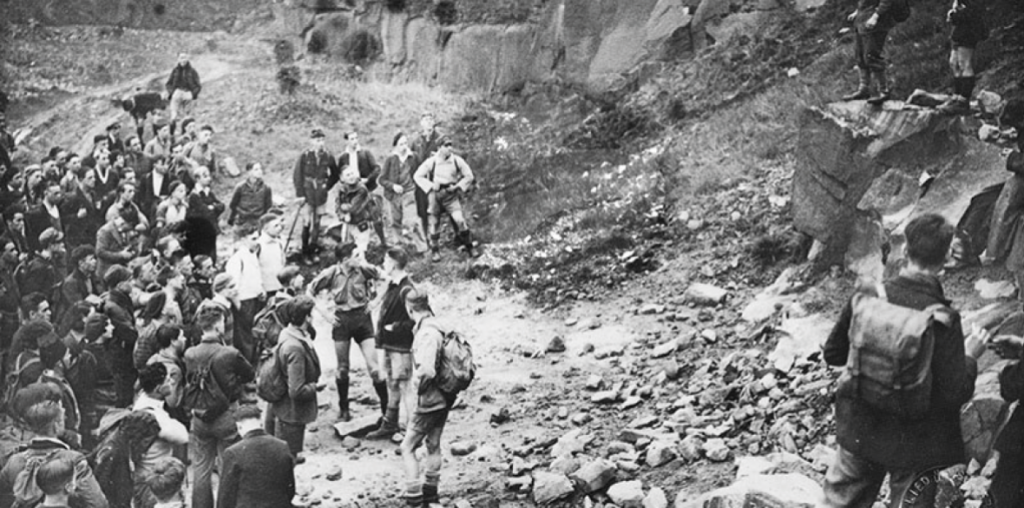On April 24 1932 a crowd of around 400, largely members of the Young Communist League (YCL) and British Workers Sport Federation (BWSF), marched up Kinder Scout with a single purpose: the right to roam our countryside.
The trespassers, overwhelmingly from urban centres, viewed land access as an essential right.
For many our moorland provided an opportunity to escape the dismal reality of the dense, smog-filled cities and towns in northern England during the Great Depression.
At the time when Benny Rothman led the march, access to our moorland was overwhelmingly reserved for the pleasures of a small number of landowners with no legal protection to ancient public rights of way.
The events that day saw clashes with gamekeepers and the mobilisation of police in an attempt to counter and intimidate the trespassers as they returned home.
Ultimately, six of the trespassers were arrested on charges of “riotous assembly” with five of them serving sentences up to six months.
The protest made national papers, bringing greater attention and support for the right-to-roam movement and is often cited as contributing to the National Parks and Access to the Countryside Act, 1949.
The events of the trespass in 1932 should be viewed in the wider tradition of working-class communities and rambling societies challenging land ownership and access in Britain, seen in events such as the Winter Hill Mass Trespass of 1896 through to the recent mass trespass on Dartmoor in January.
Despite the National Parks and Access to the Countryside Act providing legal public right of way and access to open land, only recently was the right to roam implemented through the Countryside and Right of Way Act in 2000.
Even then the Act only provides the right to roam on just 8 per cent of England’s land. Additionally, it does little to stop the regular attempts by landowners to obscure or block public rights of way across Britain.
The hard-fought gains of the past 74 years are under renewed threat as the landed classes use their influence in the British parliamentary system to lobby against public access.
Take, for instance, the infamous Police, Crime, Sentencing and Courts Act 2022 through which trespass has moved from a civil to a criminal offence.
It can only be seen as a direct attack by the Tory Party on the public’s access to land in Britain and a part of the longer tradition of robbing us of the land in which we live.
Around 92 per cent of England’s land is privately owned and inaccessible to the public and it is amassed in the hands of less than 1 per cent of the population, with a third of which still being owned by the landed aristocracy, many of whom are the same families who have owned it for generations.
In the words of Benny Rothman: “[Kinder Scout] was a demonstration for the rights of ordinary people to walk on land stolen from them in earlier times.”
For a country which couches itself in a national heritage of “liberty” and “democracy,” it begs the question as to why any vestiges of a feudal Britain remain, particularly in areas such as land ownership or government.
With all the intentionally vague rhetoric around housing crises, migration statistics and “anti-social behaviour” a solution should appear obvious for a densely populated island nation of 67 million people: who owns our land and for what purpose should be a public matter — not a private one.
Tellingly, there is no public, accessible register of land ownership in England. This is unsurprising as notoriously media-shy companies such as Peel Holdings and the landed aristocracy hoard vast amounts of England’s land with no public oversight.
The heritage of events such as the Kinder Scout mass trespass are increasingly relevant today. With the recent attention around the right to roam, heightened attacks by the Tory Party and landed classes on public access, the potential loss of 49,000 miles of public footpaths, demonstrations by the far right in the High Peak and the recent mass trespass on Dartmoor, we must continue the legacy and work of the trespassers of 1932 and build a movement for our right to roam today.
Manchester branch, Young Communist League



